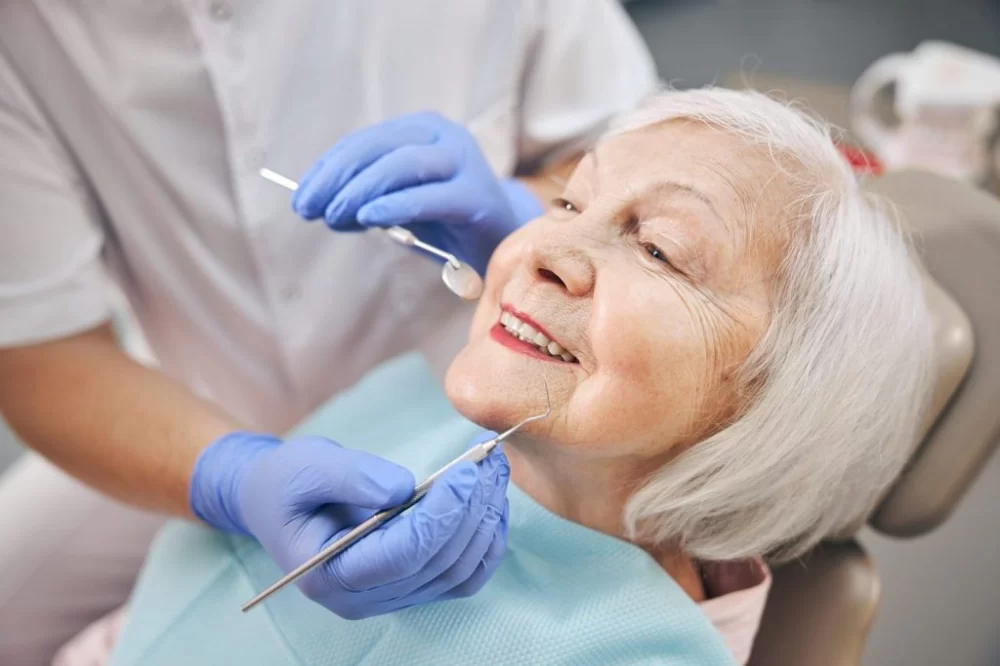
The Importance of Good Dental Care for Elderly Patients
As I age, I’ve become increasingly aware of how essential it is to maintain good dental health. For elderly patients like myself, regular dental care goes far beyond just keeping a smile looking nice; it plays a significant role in overall health and well-being. Dental issues can escalate quickly in older adults, but with the right approach to oral hygiene, many of these issues can be prevented or managed effectively. In this article, I’ll share why maintaining good dental health is so crucial for seniors and offer practical advice on how to care for our teeth as we age.
1. Why Dental Care is Critical for Older Adults
As we age, several factors contribute to the deterioration of our oral health. Changes in the mouth, such as dry mouth, gum recession, and worn-out teeth, can increase the risk of tooth decay, gum disease, and other complications. Additionally, some medications that older adults take can dry out the mouth, which exacerbates these issues. Many seniors also face challenges in maintaining daily oral hygiene due to mobility issues, arthritis, or cognitive decline. If not addressed, these factors can lead to serious health problems, including heart disease, diabetes, and even infections. That’s why good dental care is not just about having a beautiful smile; it’s a critical part of staying healthy and independent as we grow older.
2. Common Dental Problems in Seniors
As we get older, certain dental problems tend to become more common. Here are some of the most frequent issues I’ve encountered and heard about from my peers:
- Tooth decay: Even if we’ve brushed and flossed regularly throughout our lives, the risk of tooth decay increases as we age. Our enamel weakens, and our saliva production decreases, which leaves our teeth more vulnerable to cavities.
- Gum disease: Gum disease is another common issue among older adults. It can lead to gum recession, bleeding gums, and even tooth loss if not managed properly. Unfortunately, gum disease often goes unnoticed until it has advanced.
- Dry mouth: Many older adults experience dry mouth, also known as xerostomia. This condition can be caused by medications, certain medical conditions, or simply the natural aging process. A dry mouth makes it harder to clean teeth effectively, leading to an increased risk of decay and gum disease.
- Tooth loss: With age, the likelihood of losing teeth increases. This is often a result of prolonged untreated gum disease or tooth decay. Missing teeth can impact eating, speaking, and overall confidence.
3. How to Care for Your Teeth as You Age
While dental issues may be more common in older adults, the good news is that many of these problems can be prevented or managed with the right care. Here are a few tips that have worked well for me and many others:
- Brush regularly: I make sure to brush my teeth at least twice a day with fluoride toothpaste. Using a soft-bristled toothbrush helps avoid damaging the gums, especially if they are already sensitive.
- Floss daily: Flossing is essential for removing food particles and plaque from between teeth. I’ve found that using floss picks or water flossers makes this easier as I get older.
- Stay hydrated: Drinking plenty of water helps keep the mouth moist and aids in washing away food particles and bacteria. This is especially important if you experience dry mouth.
- Regular dental checkups: I visit my dentist regularly for cleanings and checkups, which are essential for catching potential issues early. My dentist also keeps an eye out for signs of gum disease or oral cancer.
- Use fluoride products: Fluoride toothpaste and mouth rinses can help protect enamel and prevent tooth decay. My dentist also recommended fluoride treatments to strengthen my teeth.
- Proper diet: Eating a balanced diet rich in calcium and vitamin D supports strong teeth and bones. I try to limit sugary snacks and drinks, as they contribute to tooth decay.
4. Overcoming Challenges in Oral Care
Maintaining a consistent oral hygiene routine can be challenging for some elderly patients, particularly those with physical or cognitive limitations. For example, conditions like arthritis can make it difficult to hold a toothbrush, while dementia can interfere with remembering to brush or floss. Here are a few strategies that have helped me and others overcome these challenges:
- Electric toothbrushes: Electric toothbrushes can make brushing easier for those with limited dexterity. They’re also effective at cleaning teeth more thoroughly than manual brushing.
- Assistance from family members: Sometimes, it’s necessary for family members to assist with brushing and flossing. This can help ensure that oral hygiene is maintained, especially for those with memory issues.
- Regular reminders: Setting daily reminders on a phone or calendar can help ensure that oral care is not forgotten, especially for seniors living alone.
5. The Link Between Oral Health and Overall Health
What many people don’t realize is that poor dental health can have a significant impact on overall health. In fact, there’s a well-established connection between oral health and several chronic conditions such as heart disease, diabetes, and stroke. I’ve learned from my own experience and through research that maintaining a healthy mouth can help prevent complications with these conditions. For instance, gum disease has been linked to higher blood sugar levels, which can complicate diabetes management. By taking care of my teeth, I’m not just preventing tooth loss—I’m also protecting my overall health.
6. The Importance of Community Support
Having a support system in place is crucial when it comes to maintaining good dental health as we age. Whether it’s family members, caregivers, or dental professionals, the encouragement and assistance of others can make a world of difference. I’ve found that participating in senior health programs or even socializing with friends about dental care has motivated me to stick to my routine. When we share our experiences and tips, we help each other stay on track and stay healthy.
7. The Future of Dental Care for the Elderly
The future of dental care for elderly patients looks promising, with advancements in technology and more awareness surrounding the importance of oral health. New treatments, such as laser therapy for gum disease and advanced dental implants, are making it easier for older adults to keep their teeth or replace missing ones. I’m optimistic that as more seniors take control of their dental health, we’ll see a significant improvement in quality of life for aging populations.







 A&B Scarsdale Family Dental Cosmetic Dentistry2.0 (81 review)
A&B Scarsdale Family Dental Cosmetic Dentistry2.0 (81 review) Mattschei Marcelo W DDS1.0 (1 review)
Mattschei Marcelo W DDS1.0 (1 review) Virginia Biological Dentistry4.0 (250 review)
Virginia Biological Dentistry4.0 (250 review) Peachtree Smile Center4.0 (228 review)
Peachtree Smile Center4.0 (228 review) The Smilist Dental Syosset4.0 (354 review)
The Smilist Dental Syosset4.0 (354 review) TruSMILES Dentistry4.0 (83 review)
TruSMILES Dentistry4.0 (83 review) The Importance of Oral Health Education During Pregnancy for a Healthy Pregnancy
The Importance of Oral Health Education During Pregnancy for a Healthy Pregnancy Best Tips for Brushing Your Teeth Properly for Healthy Gums: Essential Techniques for Oral Health
Best Tips for Brushing Your Teeth Properly for Healthy Gums: Essential Techniques for Oral Health Why Skipping Dental Checkups Can Lead to Bigger Oral Health Problems
Why Skipping Dental Checkups Can Lead to Bigger Oral Health Problems Advantages of Porcelain Dental Restorations
Advantages of Porcelain Dental Restorations How Can Diabetes Cause Tooth and Gum Problems? Preventing and Managing Oral Health Issues
How Can Diabetes Cause Tooth and Gum Problems? Preventing and Managing Oral Health Issues Healthy Habits for Promoting Good Oral Health and Hygiene: Tips for a Healthy Smile
Healthy Habits for Promoting Good Oral Health and Hygiene: Tips for a Healthy Smile